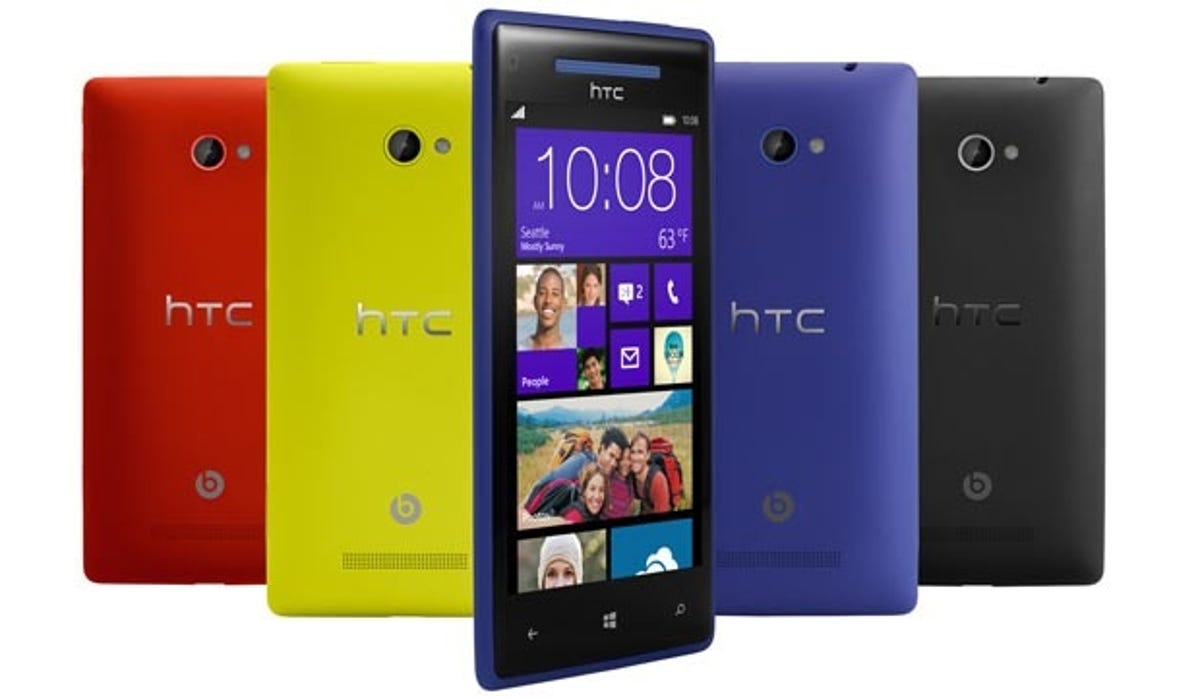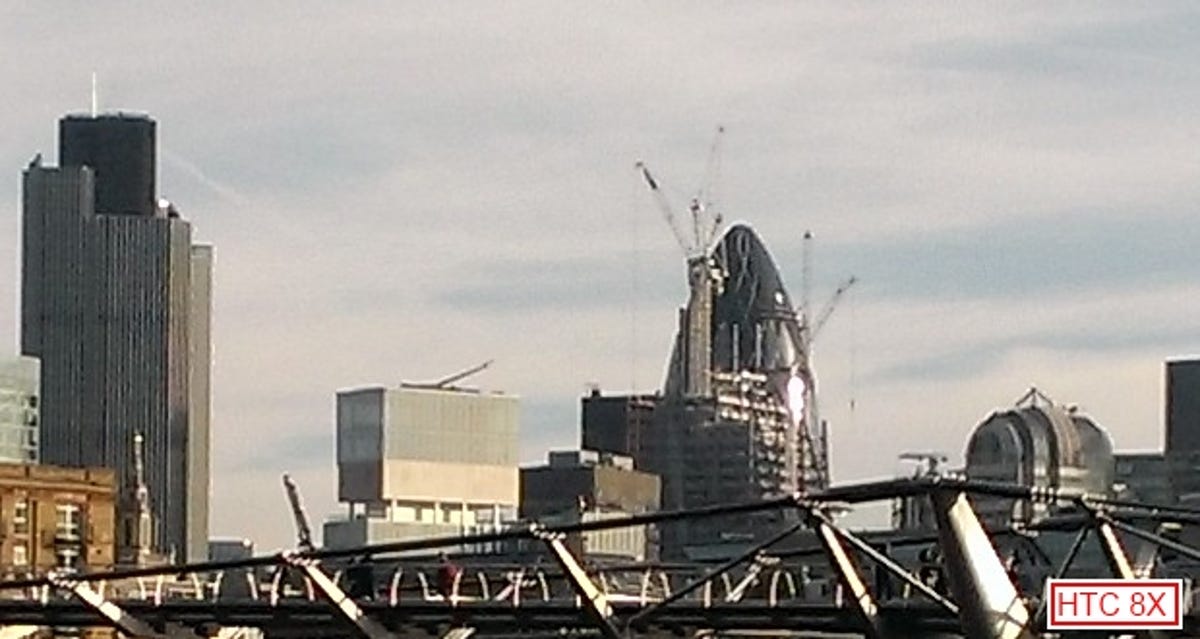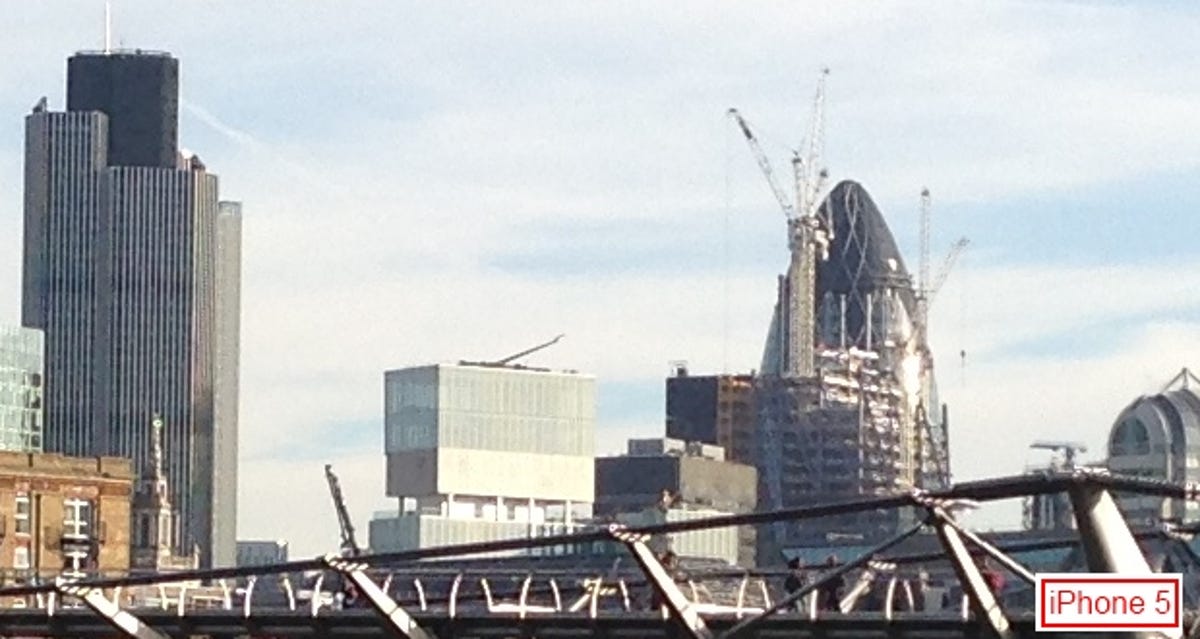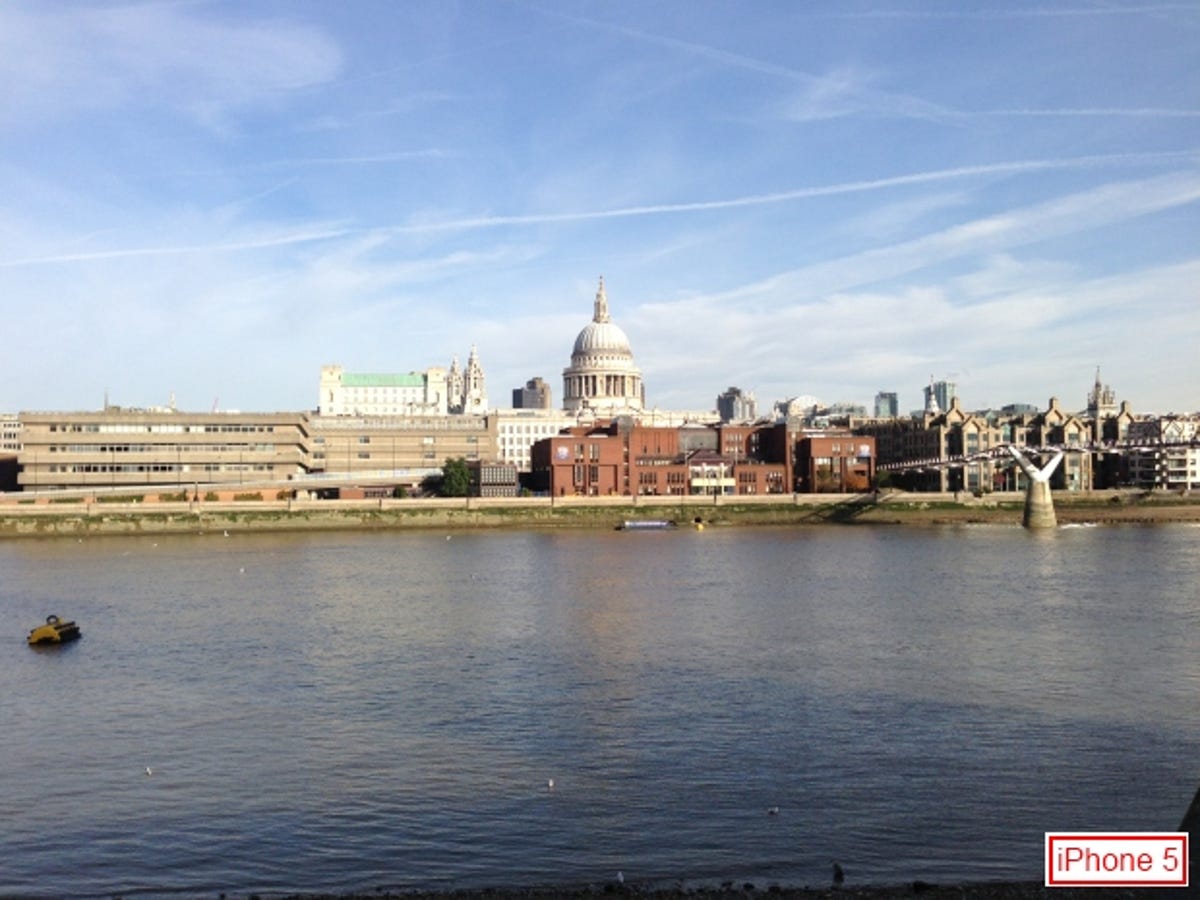
HTC’s 8X running Windows Phone 8 is upon us, sporting an 8-megapixel rear camera. To see what it’s capable of, I took it for a walk along the Thames with the iPhone 5. Both cameras were set to their maximum resolutions and all settings were put on automatic.
The results were generally fairly pleasing. Image quality was fair and fine details on distant buildings were visible when I viewed the photos on a full screen back at the office. The iPhone 5 provides sharper lines on distant buildings so has the edge in terms of clarity, but the 8X’s attempts were still good.




The 8X does, however, offer very different image tones. While the iPhone 5 has a more natural image tone — albeit sometimes bordering on the cold — the 8X had a darker, almost purple hue to it. This is not always unpleasant, and gives a warmer feel to an autumnal picture — but it’s not an accurate depiction of the scene. If I want to add warm tones, I’ll do so in post production.
Unlike the iPhone however, the 8X offers the ability to tweak some of the settings. Effects such as black and white or sepia are available and you can also change white balance, exposure, contrast, saturation, sharpness and ISO speeds. The camera does a decent job on full auto mode but it’s handy to be able to tweak the settings if you want to get a bit more creative.




It’s not as full-featured as HTC’s high-end Android phones though. The One X offers numerous shooting modes like burst mode, panorama and HDR — none of which are available on the 8X. The lack of apps in the Windows Phone 8 store will be a similar problem for photography enthusiasts. There’s a few bits and pieces for editing your snaps, but none of the big names — such as Instagram or Photoshop — are available.
The camera is also able to shoot 1080p video which I found to be comparable to the video on most higher-end smartphones around. It’s got a front-facing camera too for those vain self portraits and video calling.
The camera is generally acceptable and will do fine for your everyday snaps. The iPhone 5 offered slightly clearer and more realistic colour tones in its shots so it takes the prize in this test. If you want more shooting modes and access to a wider choice of editing apps then you should look to some of the high-end Android devices.
I’ll be pitting the 8X against the Nokia Lumia 920 and others soon, so stay tuned for a more comprehensive comparison. In the meantime, check out my full review of the HTC 8X and let me know what you think to the phone — and to Windows Phone 8 — in the comments below and on our Facebook page.



